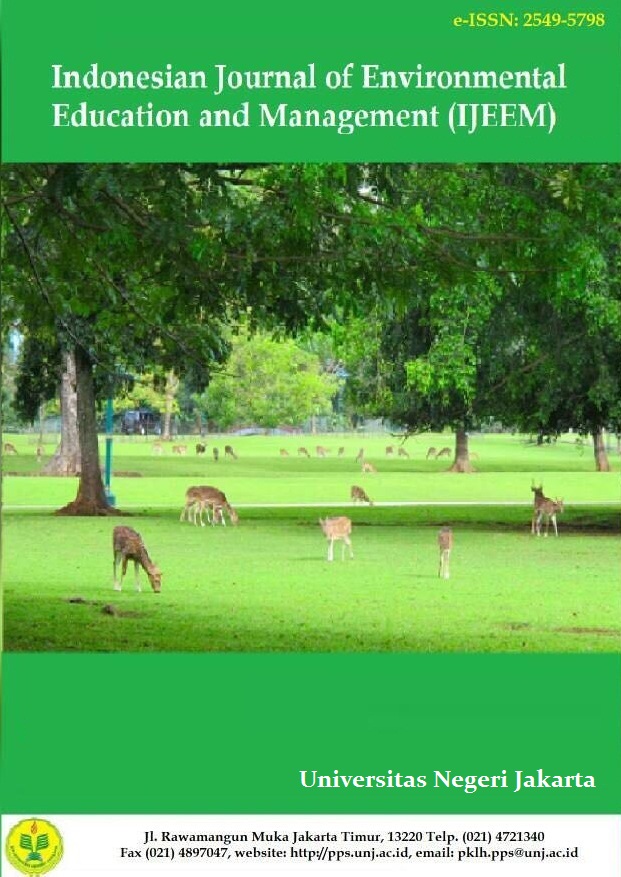Correlation Between Student’s Knowledge of Ecology Concepts With Ecological Footprint Based on Gender
Correlational Study Toward Student of 31 High School Jakarta
Abstract
Ecological footprint is an estimation analysis or measure individual consumption behaviour resulting in the environment. One of the factors which ecological footprint affects are knowledge of ecology concepts and gender. The objective of this research was to determine the relationship between student’s knowledge of ecology concepts to ecological footprint based on gender. This research was conducted on January-February 2016. The method used was descriptive method with correlational study. The sample was simple random sampling about 104 students. The prerequisite test showed that the data was normal and homogen. The first hypothesis test using linear regression test and simple correlation. Regression model obtained Ŷ = 0.047–0.574X had a significant and linear relationship. The coefficient of correlation obtained was –0.72, which means there was a negative relationship between student’s knowledge of ecology concepts to ecological footprint. The coefficient of determination obtained was 0.518, which means student’s knowledge of ecology concepts contributed 51.8% to the ecological footprint. The second hypothesis test using t-test independent sample, significance value obtained was 0.123, which means that there was no significant ecological footprint difference between man students and woman students. The result of this study concluded that there was negative correlation between student’s knowledge of ecology concepts with ecological footprint and gender was no affect the student’s ecological footprint. The higher of knowledge of ecology concepts will reduce their ecological footprint and it will create a balance environment.





